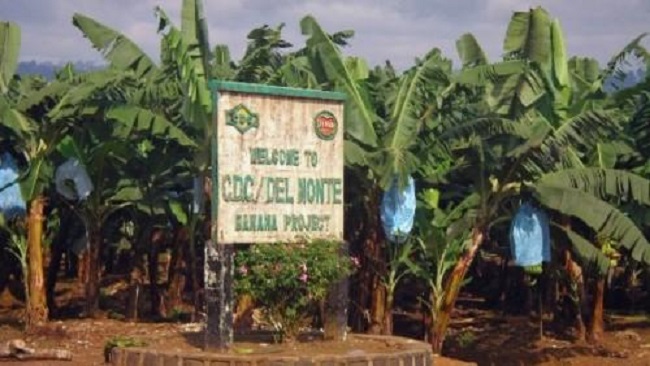Southern Cameroons Crisis: Abandoned CDC-Delmonte workers are stalked by hunger, death
Deprived of everything under the Franklin Ngoni Njie administration, CDC-Delmonte workers who had been scraping on FCFA 500 FRS per day are now left with nothing. General Manager Ngoni Njie and his Musonge gang have not raised any alarm ever since the war in Southern Cameroons started four years ago as the workers, abandoned in places like Tiko, Mautu, Mondoni, Ekona and Muyuka slid silently into catastrophe.
“They have become like beggars,” said Cameroon Concord News Fako Bureau Chief. CDC-Delmonte workers have been unable to properly feed themselves or their families and many are being forced out of their homes by landlords.
Many of the workers have their tiny arms immobilized by malnutrition, some have kids suffering from tuberculosis and beneath their poorly equipped “Carabout” houses, the dirt floor is slowly being eaten away by the heavy rains in places like Tiko.
The workers are dying like flies and the toll has continued to climb since.
In 2021, at least 37 CDC-Delmonte workers have died across Fako according to Cameroon Concord News sources in the Southern West region.
More than 3000 workers have been left in abject poverty at CDC-Delmonte estates, spread across Southern Cameroons.
The so-called Dion Ngute government is reportedly helpless and lacks the resources to launch any emergency relief program even though conditions remain grim. The CDC-Delmonte workers are dying either from malnutrition or inadequate medical care.
Dozens of men have left their families to find work in French Cameroun, but women and children have remained in houses on the estate controlled by Ambazonia Restoration Forces.
The Biya Francophone regime has done nothing to penalize CDC and Delmonte for abandoning their workers and the workers are dying in a system closer to the 19th century than the 21st.
Established by the Germans after the 1884 Berlin Conference, the CDC plantations now being auctioned to French businessmen by the Francophone political leaders in Yaoundé are among the few examples of large-scale organized agriculture in Southern Cameroons
There are several plantations in the two Cameroons but those in Southern Cameroons are widely seen as having the worst labour conditions. Most of the workers live below the U.N.’s $2 a-day threshold for extreme poverty.
By Soter Tarh Agbaw-Ebai





